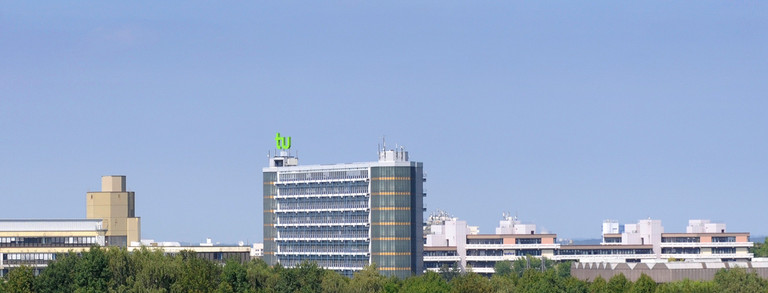“Semester Zero” Offered by Two Pilot Departments
- Top News
- Studying & Teaching at TU Dortmund University
- Press Releases

In the beVinuS.nrw project, the three partners are jointly developing a program of digitally supported self-learning phases accompanying studies by 2025. It aims to enable students to close knowledge gaps alongside their studies and individually and responsibly refresh the school competencies needed for their respective study programs to enhance academic success and prevent dropouts. The Ministry of Culture and Science of North Rhine-Westphalia has been funding the project since October 2022 with around 3.5 million euros for three years.
Since the winter semester 2024/25, students of the Departments of Physics as well as Electrical Engineering and Information Technology in the first and third semesters are the first to have the opportunity to use the offer. The focus is on school-level mathematical competencies. Students participate in tests in thematically appropriate university courses and then receive recommendations for suitable courses from the “semester zero”. 121 students from the Department of Physics and 50 from the Department of Electrical Engineering and Information Technology took part in the entrance tests. Additionally, students receive information about interdisciplinary offers on the Moodle learning platform or from other facilities such as the Math Helpdesk and student counseling.
“Important contribution to educational equity”
The course also includes a feedback tool through which students can leave feedback. A helpdesk special for exam preparation, offered by the Department of Mathematics in the past summer semester in connection with beVinuS.nrw, has already met with positive feedback.
”beVinuS.nrw is a focus project for university management because it makes a significant contribution to more educational equity,” emphasized Prof. Wiebke Möhring, Vice President Academic Affairs at TU Dortmund University. “We have observed for a long time that our students bring very different levels of background knowledge from school. They can close these gaps through the semester-accompanying ‘semester zero,’ which increases their chances of successfully completing their studies.”
Universities already offer a wide range of support services for first-year students, such as preparatory courses. However, the content is covered in a short period before the start of lectures and is not tailored to individual needs. Participation is also usually time and location bound. With beVinuS.nrw, these disadvantages are addressed: through digital self-learning, students can use the offerings flexibly in terms of time and place and repeat exactly the content in which they still have gaps. The participating universities, in cooperation with the Ministry of Culture and Science of North Rhine-Westphalia, aim to develop a reform model so that participation in such supplementary offerings can also be funded by BAföG. Thus, the courses are to be credited to the students as additional study achievements and, if sufficiently comprehensive, increase the eligible standard period of study. After the end of the project, the documented reference process will be made available to other universities in NRW. They can then draw on the previous experiences of TU Dortmund University, the University of Wuppertal, and RWTH Aachen University when introducing their own “Parallel Virtual Semester Zero.”
Contact for queries:





![[Translate to English:] Partner Four hands are holding the green logo of TU Dortmund University](/storages/tu_website/_processed_/1/d/csm_Partner_Nicole_Rechmann_KW_670eba0154.jpg)




![[Translate to English:] Forschung An apparatus with tubes in a laboratory](/storages/tu_website/_processed_/0/c/csm_Forschung_Juergen_Huhn_4fa3153b51.jpg)
![[Translate to English:] Studium Five students are sitting in a lecture hall. They are talking to each other.](/storages/tu_website/_processed_/c/9/csm_Studium_FelixSchmale_dbdbfb0dd7.jpg)





